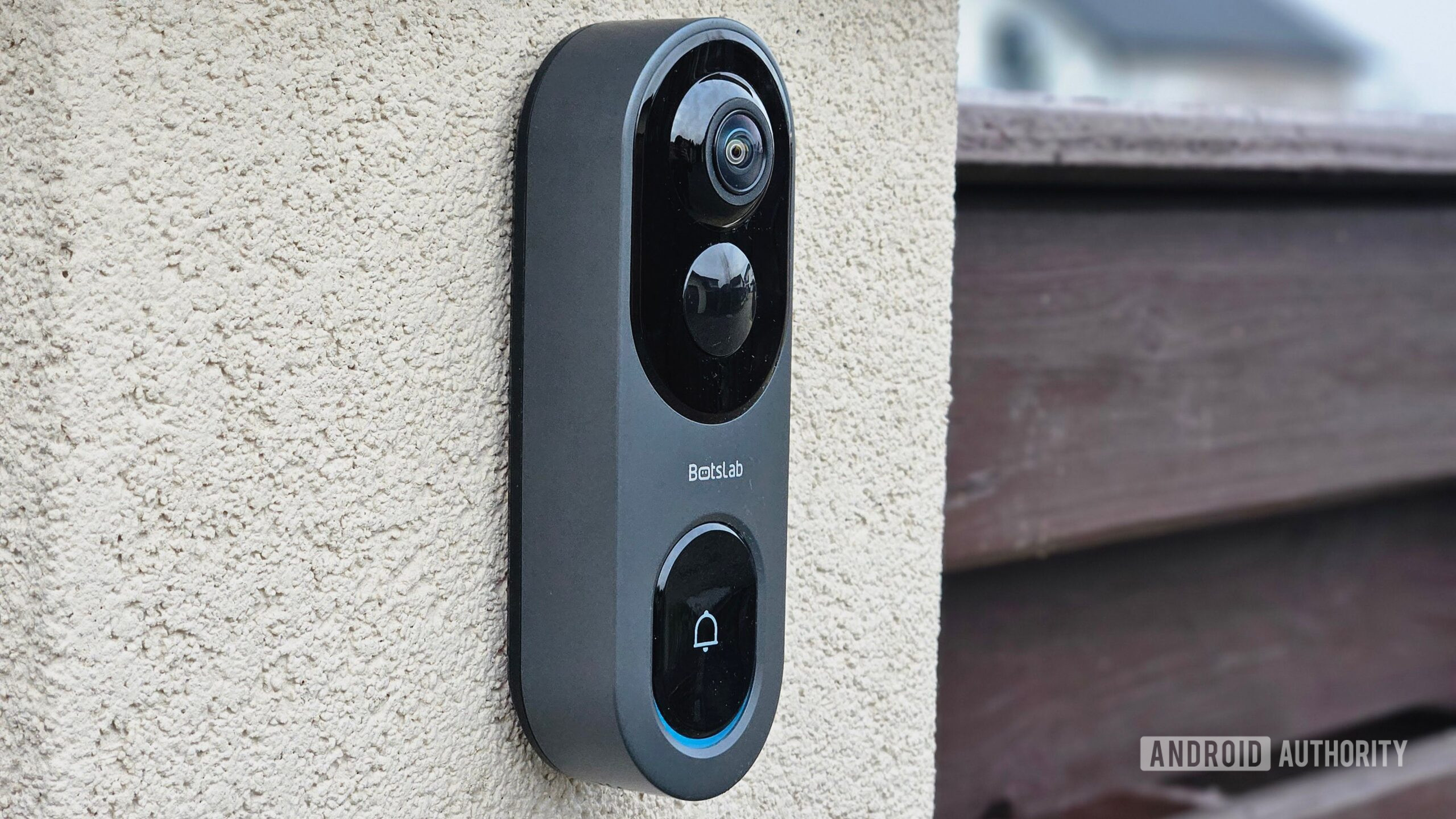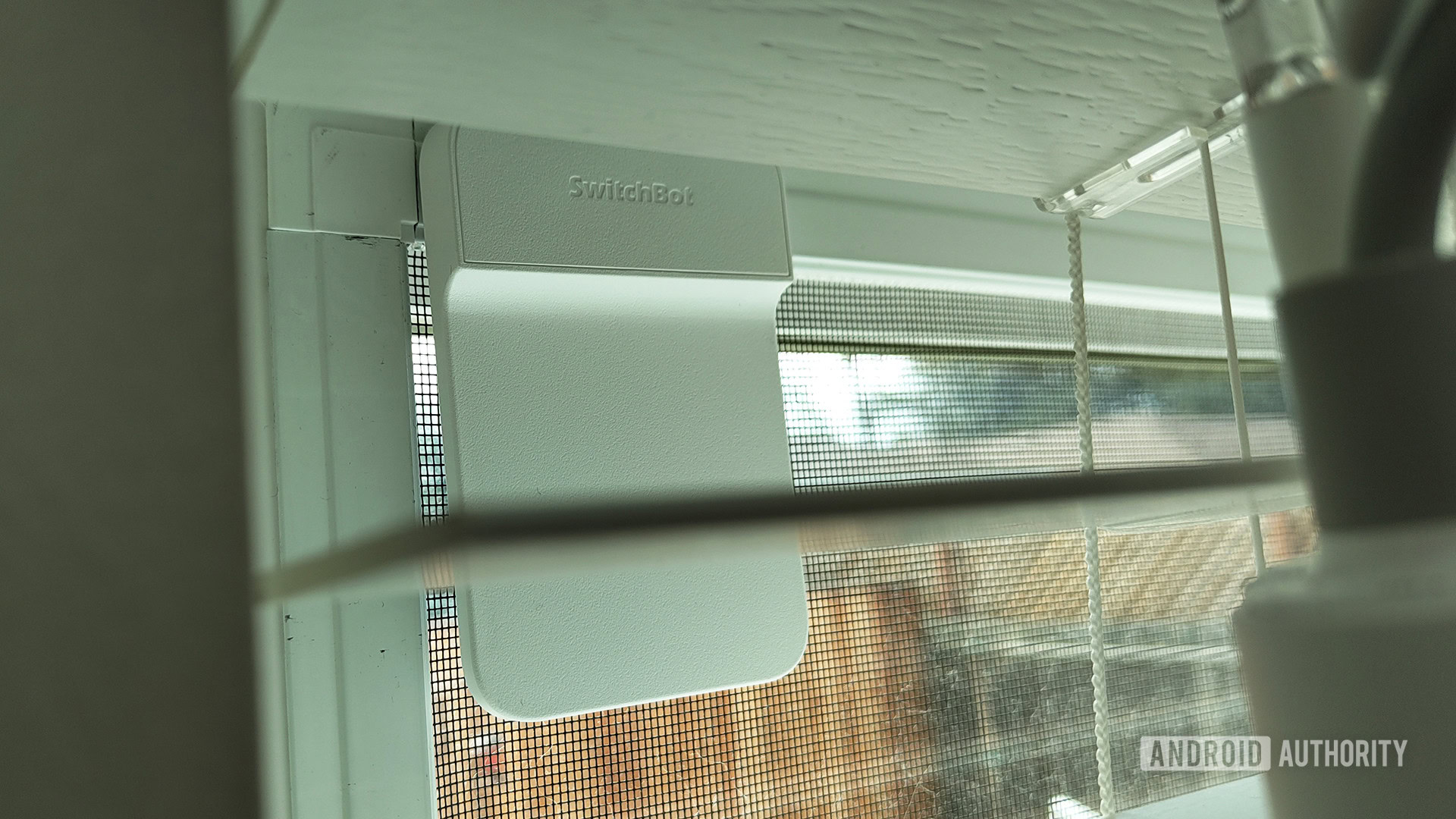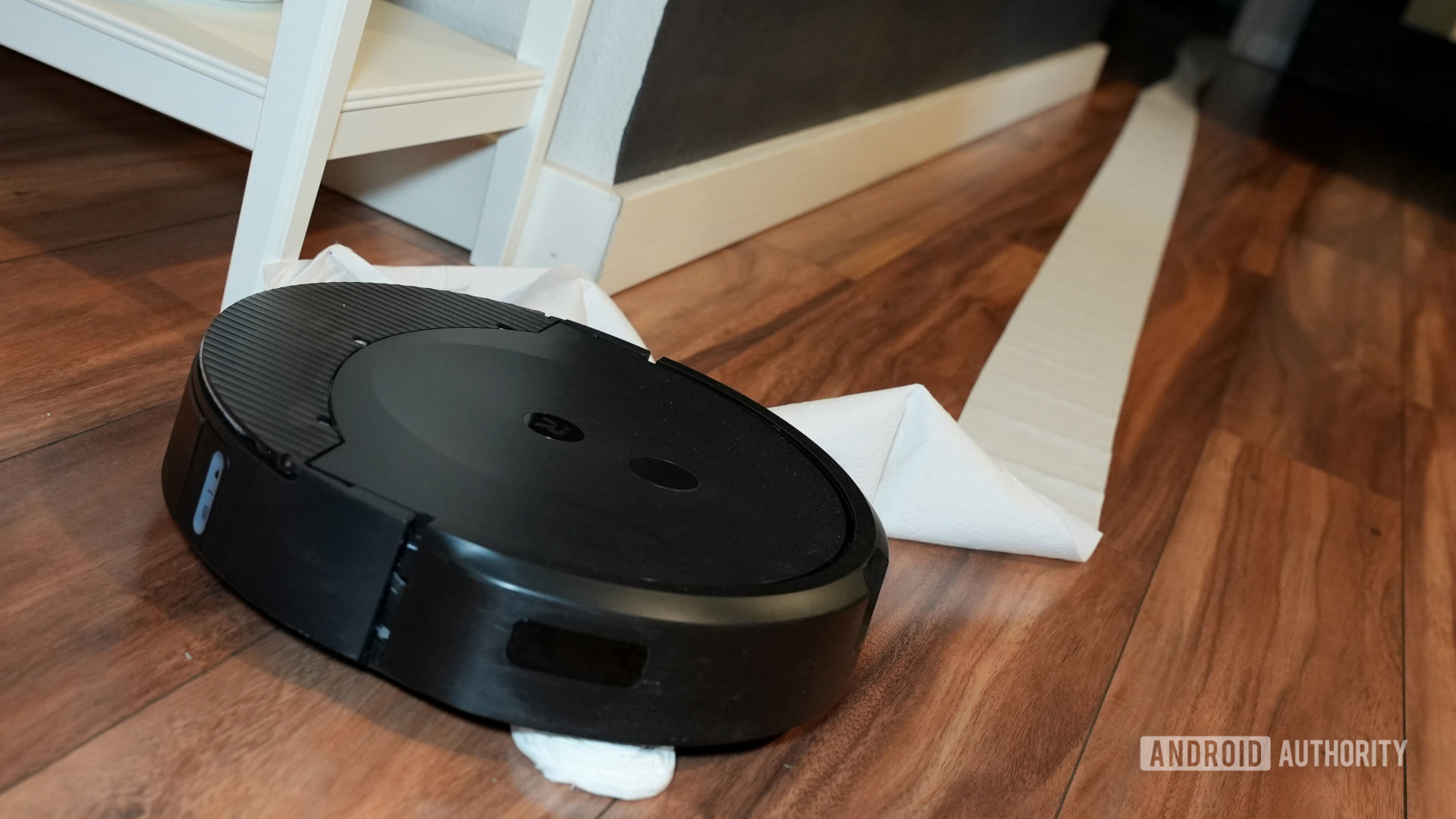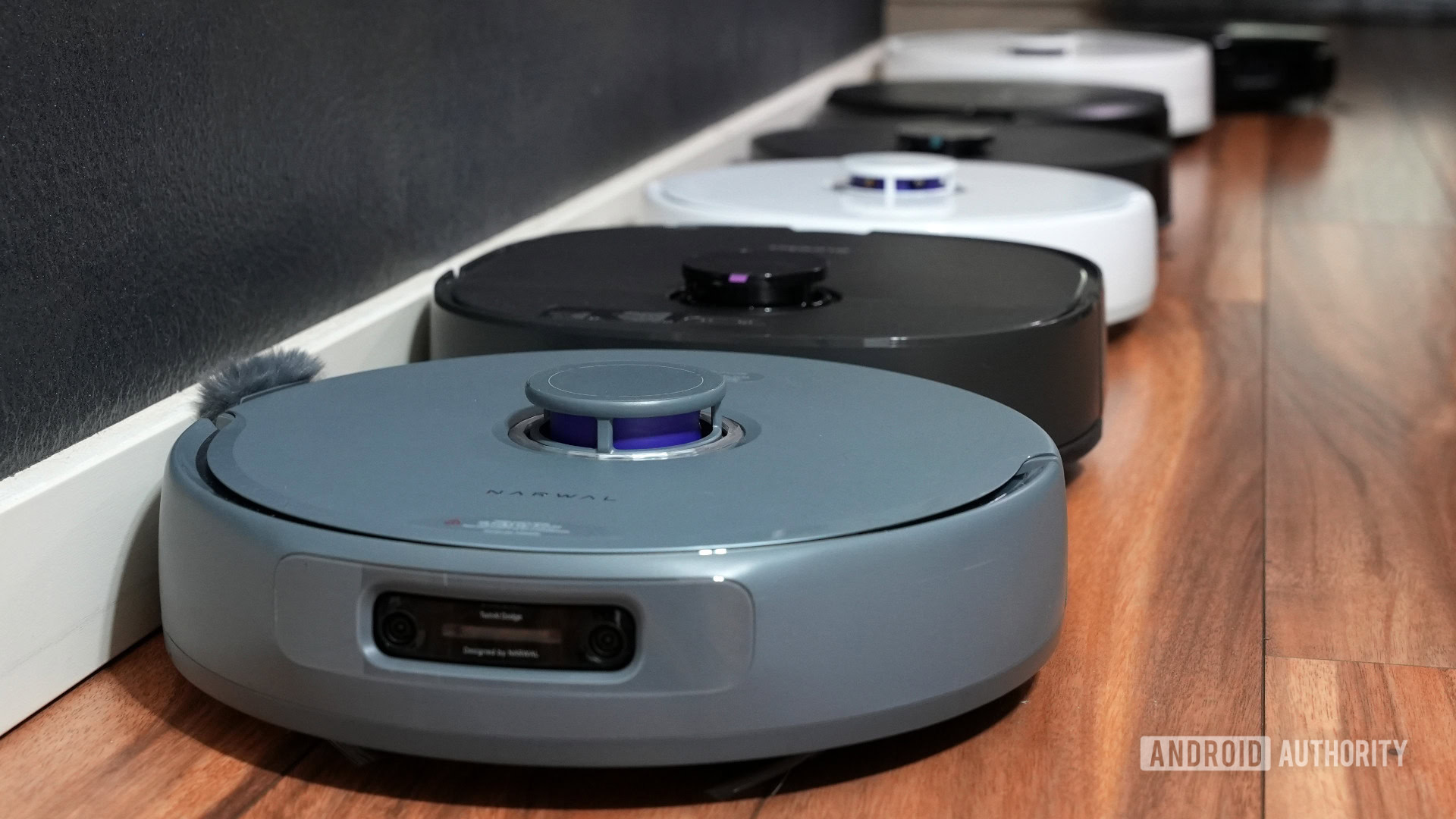Jonathan Feist / Android Authority
I obviously own some smart devices. I have a smartphone, which is somewhat important in this job and generally handy in life. I also have a smart TV — you’d probably have to go far out of your way to find any other kind of TV. But that’s it. Other than the TV, I don’t own any smart home devices. I don’t feel they’re necessary in my life.
Before you take to the comments section, I’m not preaching to you. Many people love their smart home gear, especially my colleagues. And I’m happy to admit that a lot of it is kinda cool. If you’d told 11-year-old me that I could unlock my door with my fingerprint and then tell the lights to come on, it would have blown my mind. Some smart home devices are also genuinely useful in the right circumstances. But everything is a balance, and the marginal gains I could personally get from a smart home don’t compel me to join the revolution just yet.
Am I just a fossil raging against the unstoppable march of technological progress? You’re welcome to be the judge, but hear me out first.
Do you have any smart home devices?
173 votes
Smart home devices shine for some

Bogdan Petrovan / Android Authority
Just to demonstrate that I’m not a complete smart-home skeptic, I’m happy to extoll the virtues of some devices. I’ll also mention why these advantages don’t bring value to me personally.
I’d argue that security is where smart home devices are most useful. A video doorbell can let you see who’s outside on your phone. Smart cameras can not only give you a live feed of your home wherever you go but even recognize people who should or shouldn’t be on your property. Smart bulbs can be programmed to give the appearance of your presence at home when you’re thousands of miles away. The list goes on, but the point is that I’d happily advocate the use of smart security options in many scenarios.
Many will find these smart home functions life-enhancing.
But it isn’t just security where smart home devices can add genuine value. A smart thermostat can make your house nice and toasty as you commute home, plus save on your energy bills. A robot vacuum can keep your floors squeaky clean, provided you do some tidying up first and open all the doors (detracting from the room-specific warming from your smart thermostat.) A smart display can be handy for video calls, streaming, and controlling other smart home devices. Many of you will find these functions life-enhancing.
But all of our circumstances are unique. I’m lucky enough to live in a secure apartment block in a warm and affordable country. I don’t need the security setup or the thermostat, and a nice lady comes to give the apartment a quick clean each week. This is a small outlay, but a robot vacuum is a significant investment itself, and its cleaning prowess is limited to the floor space. I also can’t exchange pleasantries with it.
We could go through every smart home device on the market, but I feel none would offer me more than the most marginal of gains.
Solutions looking for problems

C. Scott Brown / Android Authority
Now that we’ve covered the useful smart home devices I don’t need, here’s a quick word on the ones I would argue almost no one needs. At the risk of antagonizing Android Authority’s smart home superfan, Rita El Khoury, I feel some devices, while providing a bit of functionality, appeal more on their novelty value or are more trouble than they’re worth.
My most controversial target isn’t one product in particular but rather an element of smart homes in general: voice activation. Sure, there will be times when your hands are occupied, or your phone is well out of reach. But that’s not a big amount of most people’s day, and getting to your phone wouldn’t be much hassle in most of those cases. The rest of the time, you’re only saving yourself a matter of seconds compared to grabbing your phone. And that’s if your command is properly understood. By the time your smart speaker has misheard your request once or twice, a few screen taps might have been quicker.
You’re also speaking to objects. I already admitted that my younger self would have found this cool — enthralled as I was by Captain Picard demanding an Earl Gray tea materialize from his wall dispenser — but I now find it just a little odd. Maybe that’s just me.
I’m never going to be persuaded by the idea of smart blinds.
While I acknowledge that voice activation has its moments, I’m never going to be persuaded by the idea of smart blinds. I’m certain I’ll draw Rita’s ire on this one, but hanging traditional blinds is no small task, and smart blinds also have to be connected to a power source — or recharged if they’re battery-powered. Once you’ve completed this significant step, synced the blinds to your device, and programmed a schedule, you’re all set.. and all you’ve done is save yourself the task of crossing the room to open or close them a couple of times each day. I guess you could make more of a case for blinds on windows that are out of reach.
By now, you can guess my opinion on devices like smart toasters or coffee machines. Anything that requires your interaction before and after use will never feel smart enough in my eyes. Until these devices are at Wallace and Gromit levels of automation, delivering me a fully prepared breakfast without my intervention, I’m not interested.
Simple is smart for me

Jonathan Feist / Android Authority
For every issue I’ve raised above, I’m certain there will be an army of smart home stans ready to call me naive. That’s fair enough, but all of my appliance-specific views are in addition to the broader context of my lifestyle. I like keeping things simple. That doesn’t mean living in a cave and foraging for food, but I like focusing on what’s important to me with as little distraction as possible.
I don’t particularly have an issue with the expense of smart home appliances, even if I’m never going to invest $1,800 in a high-end robot vacuum. It’s all of the admin that clashes with my approach to life.
If I wanted a smart home, I’d have to research the models and consider how they’d interact with the ecosystem I’d build. I’d have to purchase them, learn how they work, and install them — a power source for smart blinds, a water source for a smart mop, and so on. Some of them would require my attention periodically, and if they break down, I have to fix them. If I can’t fix them, I need to find someone who can.
I don’t want to be the custodian of more devices, even if they’re trying to make my life easier.
Do they need a software update? Do I need to upgrade for any reason? Do they require an account with the manufacturer in order to function? Are there privacy issues? I might have blown all of this out of proportion in my mind, but I’ve got enough admin on my plate already. I don’t want to be the custodian of more devices, even if they’re trying to make my life easier.
Again, this is all personal preference. Millions of people are happy with their smart homes, and I’d happily admire their function if I visited a friend with all the smart kit, just as I enjoy playing with my friend’s dogs without having to do all the dog-owning tasks.
I’ll also admit that I’m disappointed I can’t find more enthusiasm for a smart home. We don’t have rocket boots yet, but otherwise, we’re mostly living the future I was promised as a nerdy kid, and I feel I’m betraying my old self by opting out of it. But that kid also envied the freedom adults had to raid the candy aisle in the supermarket and stay up all night. He never imagined that my adult self would be stocking up on vegetables and looking forward to a nice early bedtime, but here we are.










